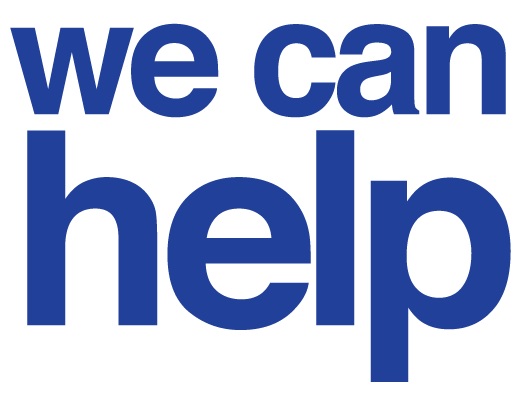
Why would your bright, creative child be at risk for third grade retention or any grade retention? If your child is a neurodivergent, right brain or kinesthetic learner (i.e. sometimes referred to as a hands-on learner or visual learner) they are behind due to their learning differences, executive function challenges and pandemic related challenges, even if they were in preschool.
Third grade retention is more likely to be a risk with mandatory retention rules, but students in early grades are at risk for grade retention too.
The good news is that if your child is a smart struggling neurodivergent, right brain or kinesthetic learner, they can often make significant gains in reading fluency and reading comprehension in months with our strength-based training.
We know that most smart struggling students:
- Are a neurodivergent, right brain or kinesthetic learner (hands-on) who can do far better with experiential learning that leverages their strengths
- Have some combination of working memory, processing speed, visual processing, attention, and/or anxiety challenges
- Are far smarter than present results would indicate
At 3D Learner, we have helped many students to:
- Beat grade retention and score at, above, or even well above grade level on tests
- Rediscover their natural love of learning
- Improve their working memory, processing speed, and self-esteem
- Improve their attention and emotional regulation
3D Learner can help the neurodivergent, right brain or kinesthetic learner beat third grade retention or other grade retention by making significant gains in reading fluency and reading comprehension in months. 3D Learner’s comprehensive educational assessment reveals important issues that many other assessments miss. For instance, one parent had a recent psycho-educational test that indicated her daughter had an attention, working memory and processing speed issue. After her daughter completed our assessment, she was surprised to learn that her daughter:
- Was a neurodivergent, right brain and/or kinesthetic learner (hands-on)
- Was a lot smarter than present results would indicate
- Had a significant visual processing issue, skipping words and lines when reading
- Struggled with small words, reading fluency, reading comprehension, and sequencing
- Had significant attention and emotional regulation issues
- Was very strong in 5 of the 11 skills we assessed — she had a great visual memory, was very creative and had a larger vocabulary than most
- But she had a real problem with the small words that often change the meaning of a sentence (i.e. words like the, but, what, if) and had significant anxiety challenges
By understanding how she learned best, we developed an engaging, personalized program built around her strengths and interests. In just months. 3D Learner helped her score above grade level on the standardized test. When they saw these results, the parents asked “Why do schools not teach the way the neurodivergent learner learns best?” We explained that schools, like most learning centers, focus on a child’s weaknesses.
Schools often do not:
- Leverage the student’s strengths and interests
- Identify and address issues like working memory, visual processing, or processing speed
- Ignite a love for learning, which is an essential part of the 3D Learner Experiential Learning Process.
Her daughter made great progress and was actually in the highest reading group the following year.
We see grade retention risks as a great opportunity for parents to make a true life-long difference in their child’s learning.
If you have a child in any elementary school grade who is struggling in school, 3D Learner can help. To discuss your child’s learning style and needs, call us at 561-361-7495.
Frequently asked questions about grade retention & the neurodivergent, right brain or kinesthetic learner
Question: What is the key reason for third grade retention and for earlier grade retention?
Answer: In Florida public and charter schools, third grade retention is primarily based on the student’s inability to do well on the English Language Assessment. While anxiety may be an issue, significant reading comprehension issues are often the primary issue. In the earlier grades, reading fluency is often the criteria for grade retention. At 3D Learner, we identify and address both reading fluency and reading comprehension issues.
Question: If many students at risk for grade retention are a neurodivergent, right brain or kinesthetic learner, why do the schools not teach this way?
Answer: Schools tend to have a one size fits all approach. There has been a real push towards phonics and phonemic awareness. Unfortunately, this does not provide the experiential learning most right brain or visual learners need. Even worse, we have seen smart and even gifted learners face grade retention because their needs were not met.
Question: Many programs focus on phonics and phonemic awareness. What are the key skills the neurodivergent, right brain or kinesthetic learner needs to master before phonics will work?
Answer Word recognition and sight word vocabulary are two of the skills needed before phonics will work. Processing speed, working memory, and attention are also skills that must be mastered.
Question: Experiential learning used to be the norm in kindergarten, first and second grade. What happened?
Answer: If that were still the case, the neurodivergent, right brain or kinesthetic learner would be more likely to thrive. The challenge today is that many of the standards are not age appropriate. This results in less experiential learning, which negatively impacts the neurodivergent, right brain or kinesthetic learner and makes grade retention more likely.
Question Is it too late in the school year to help beat third grade retention or any grade retention?
Answer It is almost never too late to beat third grade retention or grade retention. The rules on third grade retention in Florida provide many ways to beat third grade retention. The best one is to score a Level 2 on the state assessment. There are also ways to be retested at the end of the summer or at the start of the next school year.
Question: I am not sure if my child is a neurodivergent, right brain or kinesthetic learner or what issues are holding my child back. I fear third grade retention. Is there a way to talk with your team and to assess my child?
Here is a no cost screening tool you can use to see if your child might be a neurodivergent, right brain or kinesthetic learner.
Answer: You can call us at 561-361-7495 or click here to schedule a How to beat Third Grade Retention or other Grade Retention risks Conversation
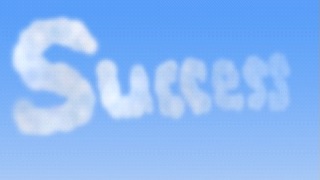
(Strength based training and strength based parenting works for these students)
Parenting for success by third grade has been a priority for us for 20 years. We have changed our focus to success by third grade or sooner, because it is even easier to help a student succeed in the earlier grades. We focus on the right brain kinesthetic learner because that is the way most smart struggling students learn best. Feel free to share this with others.
For the purposes of this blog post, we will define success by third grade or sooner to include:
- Being on grade level for reading fluency
- Reading comprehension consistent with a child’s intelligence (e.g. a gifted student is often a grade ahead or more by third grade, while the gifted right brain kinesthetic learner may be a year or two below their peers). Success for the gifted right brain kinesthetic learner may be having their reading comprehension be a year above grade level.
- Being a good speller
- Both mastering math facts and being good at math word problems
- Attention, working memory and/or processing speed being significantly better, where an issue exists
- Low anxiety and self-confident
Here is a classic case:
A mom, whose daughter was identified with dyslexia and ADHD, was told to enroll her daughter in a traditional dyslexia treatment. Mom called a friend who asked the questions the following questions:
- Does your child remember places visited, even from years ago?
- Does your child learn best when he or she sees and experiences information?
- Is your child a lot smarter than her present level of reading comprehension would indicate?
The mom said, “That describes my child”.
The friend then asked about reading comprehension and spelling. Mom said reading comprehension was a big issue, but the recommended program focused on reading fluency. She added that spelling was a nightmare for her daughter. Spelling consumed over 3.5 hours a week, her daughter got 50s and 60s on the spelling tests, and often forgot the words by the next week.
The friend recommended she call us and …
We helped her third-grade daughter. She improved from the lowest reader in her 3rd grade class to the best reader in her 4th grade class. . Her spelling was mastered in under an hour a week and she got 90s and 100s on her spelling tests. Her dad commented, “What was really surprising was she remembered the words a year later”. Math became much easier and she learned how to check her work. In 4th grade, there was a contest to see who could read the most pages in a month. This young lady read 726 pages, while the average kid read 181 pages. When her dad asked her how she got so much better in reading and why she now loved reading, she commented, “3D Learner taught me how to visualize what I read; do you know how cool that is?”.
If you would like to discuss how to put your child on the
Pathway to Success by Third Grade or Sooner, call us at 561-361-7495
Why We Focus on Success by Third Grade or Sooner
We focus on Success by 3rd Grade or Sooner because:
- It is far easier to help a child in these grades than in the later grades
- While 3rd grade is critical, addressing the opportunity even earlier can be even better
- Both the gifts and the challenges are obvious in 1st and 2nd grade — even sometimes in kindergarten.
- It helps to avoid grade retention and many sleepless nights
- In a number of cases, it has allowed students to get into more advanced or gifted classes — where they may previously have been excluded.
Note, the smart or gifted right brain kinesthetic learner often does far better when they have the skills to succeed and are in classes with other smart kids.
The bright right brain kinesthetic learner often has 3, 4 or 5 of the following strengths and challenges
- Learn differently and are right brain kinesthetic learners
- Have auditory and/or visual processing issues
- Have one or more executive function challenges (attention, working memory and/or processing speed)
- Have a learning disability or dyslexia
- Are frustrated and/or anxious
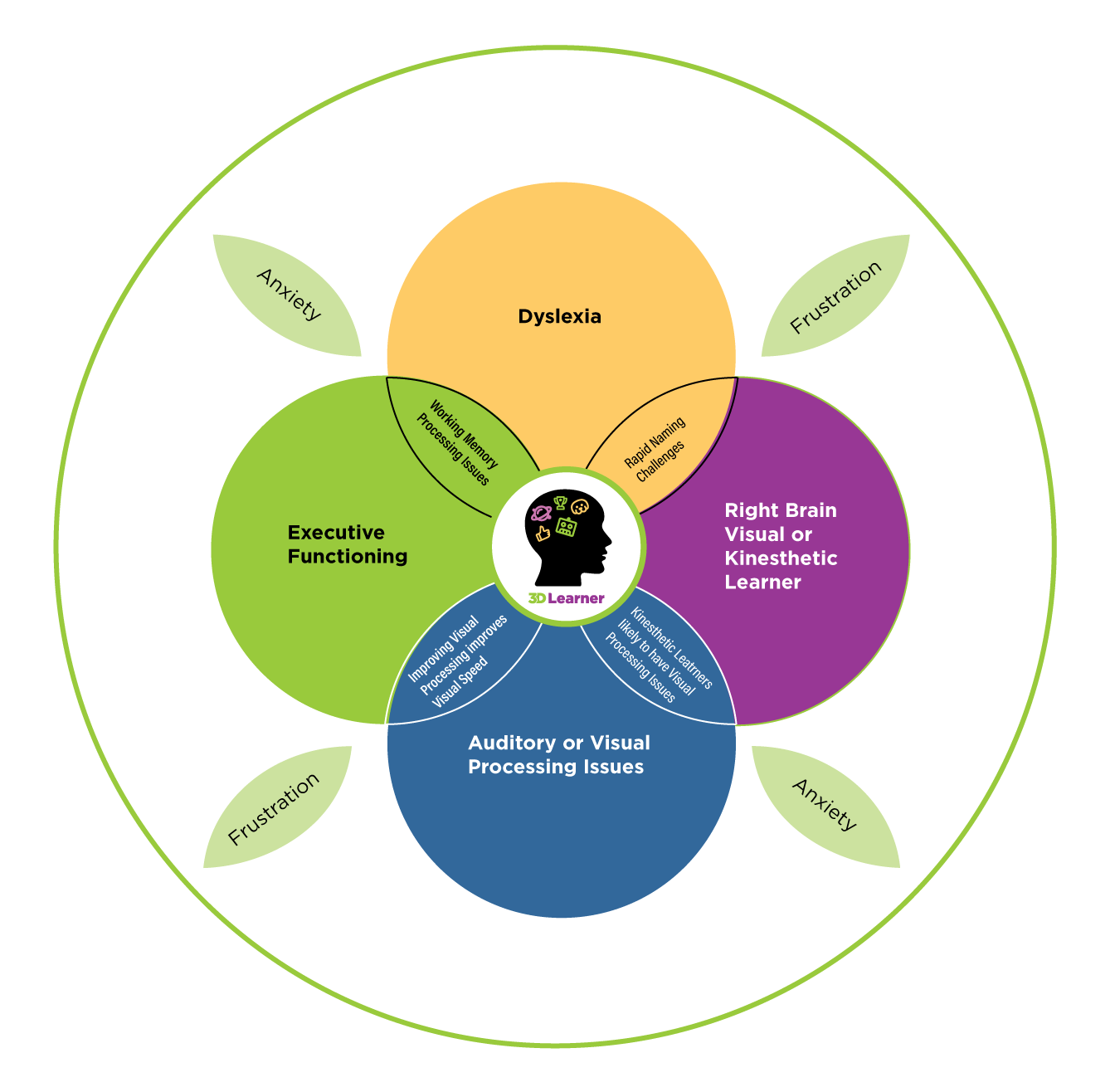
Bright Right Brain Kinesthetic Learners Benefit When One Capitalizes on Their Strengths,
while Identifying and Addressing the Relevant Issues
This Often Requires The Parents to Take Charge
Is your child a bright right brain kinesthetic learner?
- Does your child remember places visited, even from years ago?
- Does your child learn best when he or she sees and experiences information?
- Is your child a lot smarter than present results would indicate?
For a more comprehensive screening tool, download our “Is my child a right brain kinesthetic learner”.
If your child is a right brain kinesthetic learner, you play a pivotal role. Too many of these kids are identified by their challenges. These could include dyslexia, executive function issues, auditory or visual processing and/or anxiety and frustration. We have been there with two of our four kids. Over the last 26 years we have helped thousands of kids like this succeed with a process that starts by helping parents to be an informed, empowered and proactive parent.
We FRAME this differently than most. Specifically:
– Frustration comes with the territory. We encourage you to embrace the frustration and to commit to helping your child to be all they can be. If your child is a right brain kinesthetic learner, there is a good chance that when you leverage their strengths, identify and address their challenges, and leverage their desire to succeed, success is much more likely to follow.
– Reject the status quo. Too often we have heard, wait, your child will outgrow the problem. The numbers tell a far more sobering picture. Almost 90% of the 1st graders with a word identification problem will become poor readers in 4th grade. 74 percent of the 3rd graders with a reading disability (dyslexia) will still have the problem in 12th grade.
Note, Success by Third Grade is relevant for public, charter, private and homeschool students. We are seeing more and more parents homeschooling their child. This gives parents the time to invest in developing foundational skills.
Call us at 561-361-7495 if we can help
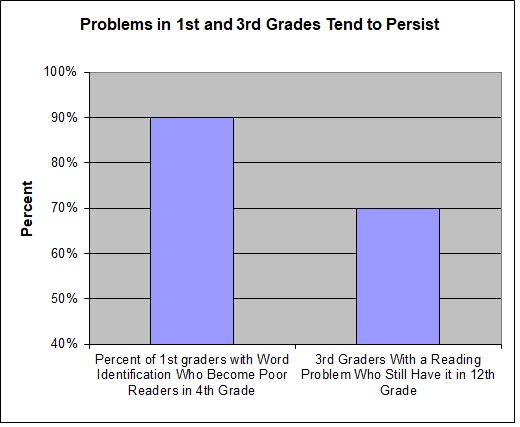
Waiting is Not an Option
Even more alarming is how often this has happened to smart and even gifted kids, whose parents gave them all the support. The challenge is, too often the support did not leverage these kids strengths or address all the relevant issues. We too made this mistake.
The next critical step is to:
Assess for Success. This would include assessing for:
- How your child learns best
- Executive function issues (e.g. working memory, processing speed and attention)
- Auditory and visual processing issues.
- Dyslexia or another learning disability
- Your child’s present level of reading fluency and reading comprehension
If the assessment shows considerable upside potential, we recommend you adopt the:
Mindset that Success is the Only Option. Then you consider:
Enrolling the services of the right professional for your child and you. Ideally, you want to work with professionals who will:
- Leverage your child’s strengths
- Address their challenges
- Boost their confidence and resilience
- Help you to be the coach and advocate your child needs
- Produce excellent results within months
If you would like to put your bright right brain kinesthetic learner
on their Pathway from Stress to Success by Third Grade or Sooner,
call us at 561-361-7495.
Feel free to share with others, who have a smart struggling child with significant upside potential.
Note, next week we will have our second article on Success by Third Grade or Sooner. We will be going into how to Assess for Success and leverage school and outside resources.

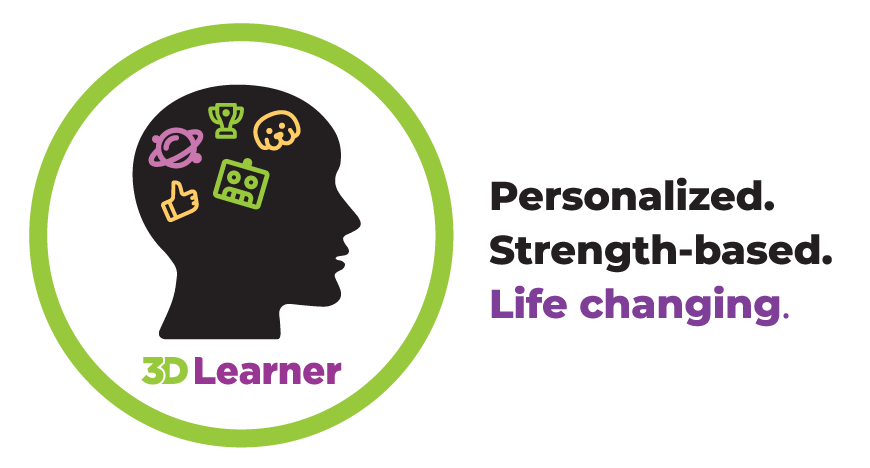
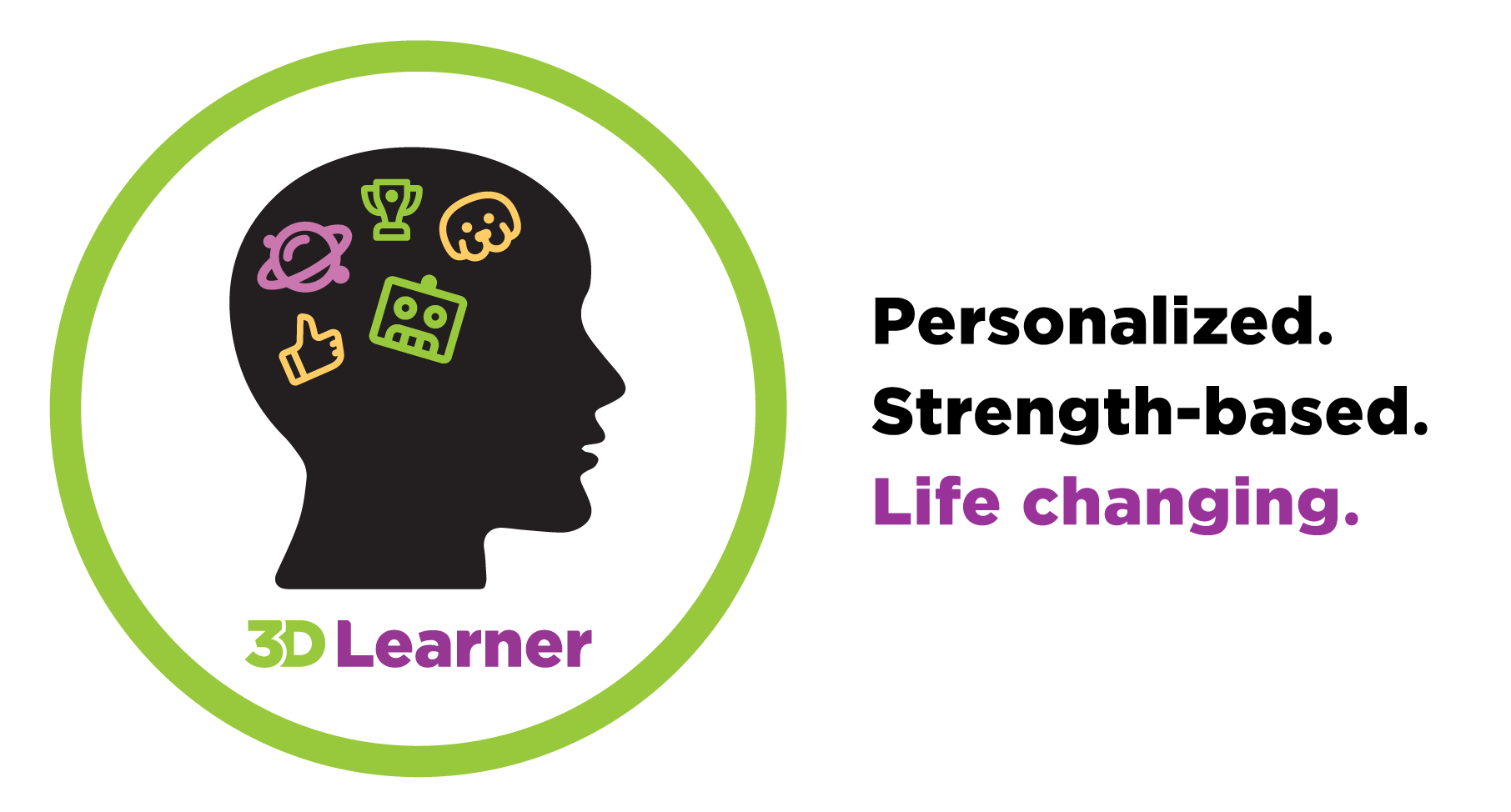



Recent Comments